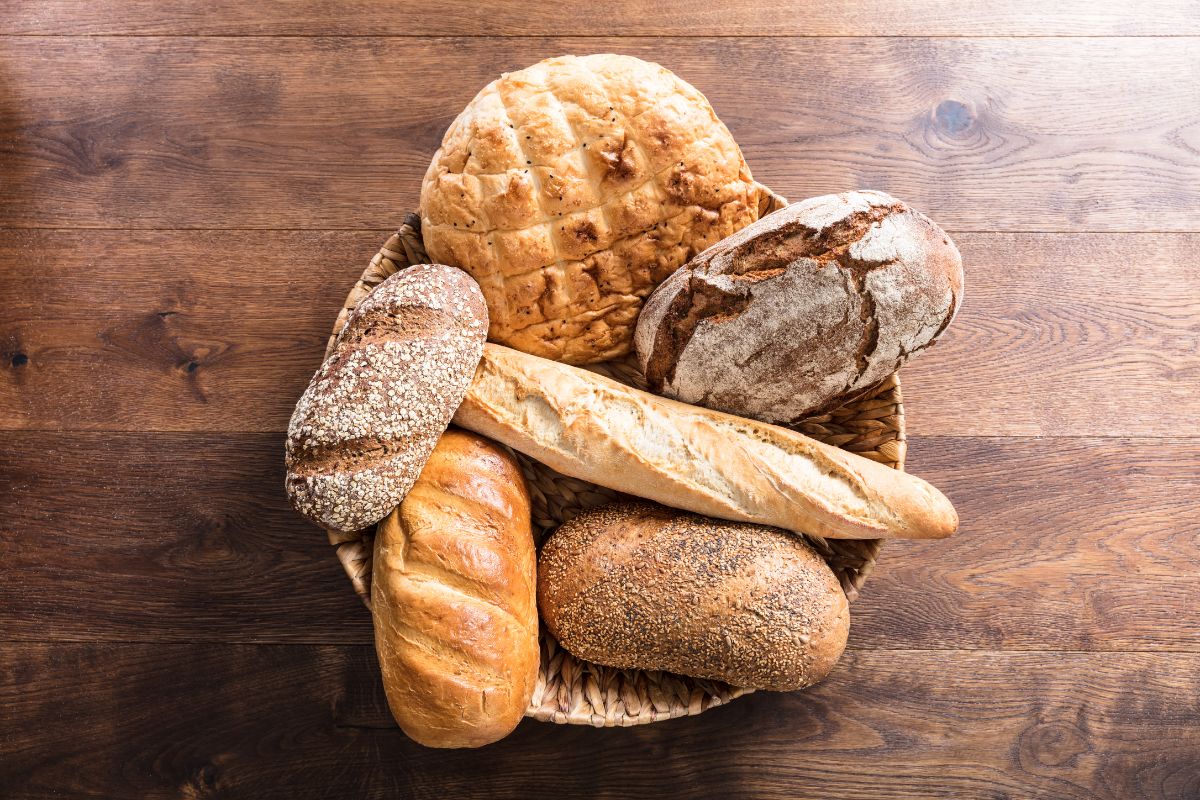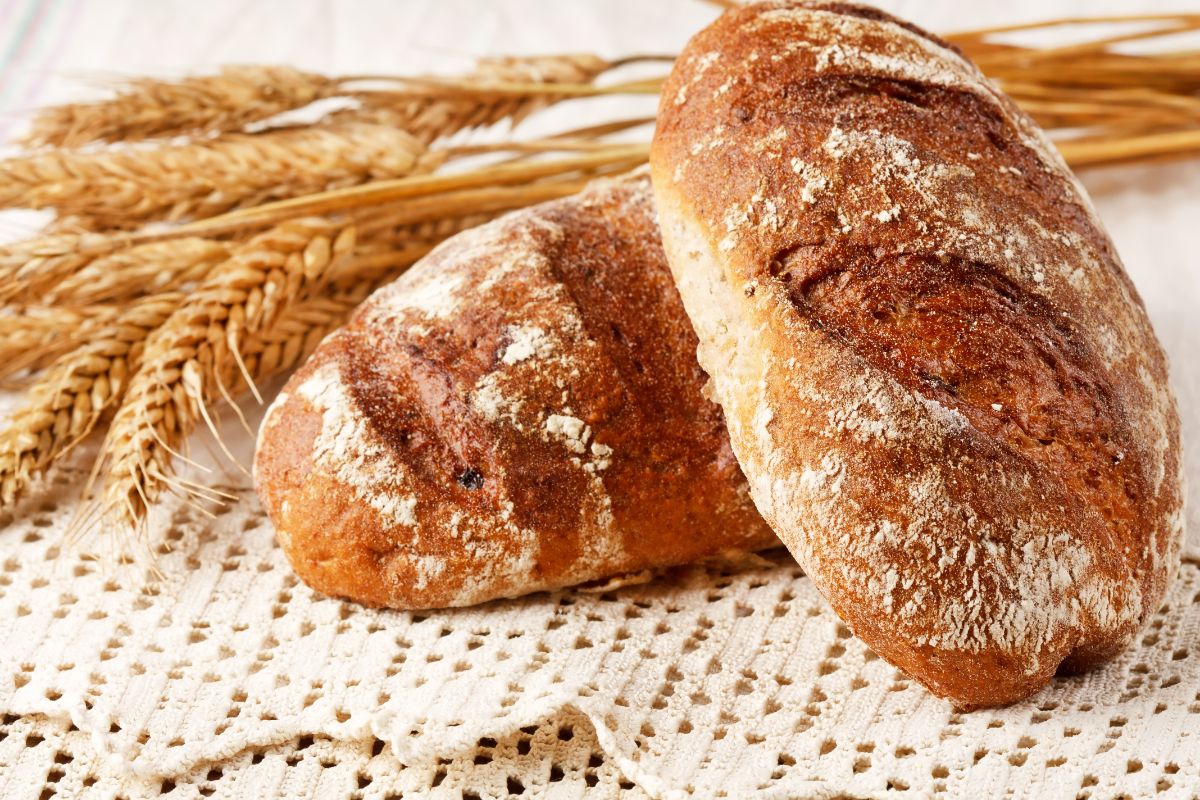Success with home baking takes a number of steps. After you bake it, you need to keep it fresh until it is time to eat or serve it. That second step is important when you want the bread to retain its freshness and taste its best.
If you are wondering “How do you store homemade bread?” you have some options that depend on the circumstances. The best option for storing bread depends on when you plan to eat it. If the bread will be used within a few days, a bread box is a good choice. You can find beautiful bread boxes in a huge assortment of styles, designs, materials, and sizes. The ideal box will allow a little air to circulate, be sturdy, and easy to keep closed.

Many people make a mistake with bread boxes. As bread boxes are often stylish and nice, they are often placed on the countertop where they can be seen and enjoyed.
However, bread boxes should not be considered part of your home decor. They have a practical purpose. As the reason for a bread box is to keep bread fresh, your kitchen is not the ideal location.
When you use your stove or oven, the heat will make the kitchen too humid for bread. It will quickly lose its freshness, and mold may develop.
If you decide to use a bread box, find a more appropriate location. Perhaps you have a separate cupboard or a cabinet in another room. The location you choose should be cool, dark, and free of moisture and excess humidity. Use a cotton or linen towel to wrap the bread, and place it in the bread box.
Another option is a cloth bag. You can find cloth bags specifically made to store bread, or you can make your own. A cotton bag will keep your bread fresh if you do not plan to store it for a long period of time.
If you plan to store the bread for more than a few days, you can freeze it. After the bread is completely cool, wrap it tightly in plastic. Place it in an airtight plastic bag, and place it in the freezer.
Why Do Storage Methods Matter?
One of the benefits of baking your own bread is the bread does not contain preservatives. The bread is much healthier than ready-made bread.
The only disadvantage to bread without preservatives is it can spoil much faster. When the bread is no longer fresh, it will not taste good, and if it becomes moldy it can be harmful to your health.
Humidity, heat, and light can cause bread to spoil and mold faster, but other popular storage methods can ruin your bread, too. One example is a plastic bag.
If you take this approach, moisture will accumulate in the plastic bag. Not only will your bread become soggy, but it will also increase the risk of mold.
A second example is a paper bag. You can use a paper bag if you put it in a bread box, but a paper bag alone will not keep your bread fresh. Instead of soft bread, it will be dry. If you do not want stale, tasteless bread, this is a storage method to avoid.
Why Do You Need To Store Homemade Bread?

Everybody knows the best approach to homemade bread is to eat it when it is still hot from the oven. It is perfect, but not always possible.
Perhaps you are baking bread so you can have nice sandwiches to take to work, or for your child’s lunchbox. Perhaps you are making it a day or two in advance for a special dinner or a party.
You may be baking multiple loaves, so you can enjoy them at a later date. This is why you need to know how to store loaves of homemade bread with the option that is suitable for your situation.
What Can You Do With Improperly Stored Bread?
If your bread is not stored properly, it may not be fit to eat. At the least, it will not taste very good. If you have made a mistake with storage, you may be wondering if the bread can be saved. It depends on the condition of the bread.
If there is any sign of mold, it should not be eaten. If it has only become slightly hard or stale, though, you do not need to dispose of it.
Slightly stale bread can be used for bread crumbs or croutons in many recipes, or you can restore it to a softer texture by heating it in the oven.
Preheat the oven to 300 degrees, and let the bread absorb the warmth for a few minutes. The specific length of time depends on the type of bread and its size. The inside of the bread will be fresh and moist, and the crust will be crispy.
Why Is It Better Than Bread With Preservatives?
There are many reasons for home baking, and health is one example. When you want healthy, nutritious bread, you do not want bread from the grocery store. Although bread from a bakery is somewhat better, it is still not as beneficial as homemade bread.
When you are considering storage, preservatives do not guarantee long-term freshness. If you are like most people, you have already had this experience.
You may have opened a bread bag and found the bread was soggy or moldy, or left it open and found it was too stale to eat. While you do not want to eat preservatives, they are not nearly as useful as people believe.
The smart solution is to bake your own bread without these unnatural ingredients and take the approach that is best for your situation when you are storing the bread for a few days or a few weeks.
Homemade bread is better for you. It does not contain any unnatural ingredients. When you bake your own, you can accommodate your personal preferences by adding, leaving out, or substituting some ingredients. It tastes better, too.
Your entire family will prefer the taste of homemade bread.
